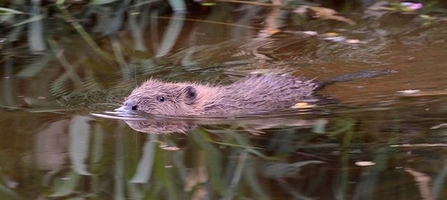
David Land
Further landmark decisions about the future for beavers in Scotland and Wales are expected later this year.
Harry Barton, Chief Executive of Devon Wildlife Trust, said:
“We are delighted by Natural England’s decision to grant us a licence to give these beavers a long term future on the River Otter. It’s the result of a great deal of effort by our charity, supported by partner organisations across the UK and, most importantly, by the local community.
“This is an historic moment. The beavers of the River Otter are the first breeding population in the English countryside for hundreds of years.1 We believe they can play a positive role in the landscapes of the 21st century through their ability to restore our rivers to their former glories. We know from our own research and research done in Europe that beavers are excellent aquatic-engineers improving the flood and drought resilience of our countryside and increasing the water quality of our rivers.2 They are incredibly industrious animals and their hard work has benefits for people and wildlife.”
Devon Wildlife Trust has expressed its delight that Natural England has granted it permission to monitor the beavers. It is well-placed to do this work because it has solid experience: Devon Wildlife Trust’s beaver trial in another part of the county is ongoing – scientific results will be published in 2016.
Public meetings have been held to discuss the presence of the wild beavers on the River Otter – there has been a high level of local support for Devon Wildlife Trust’s proposal to set up a five year project to monitor the population and its impact. It is appealing to the public to help it fund the scheme. Public enthusiasm for the beavers is high – with Devon Wildlife Trust raising £45,000 in just eight weeks.
The Wildlife Trusts are at the forefront of bringing beavers, and the lost landscapes that were once their home, back to the UK. Beavers were hunted to extinction in the UK by the 16th century because their fur was highly valued. Now Wildlife Trusts in England, Scotland and Wales are making the case for their reintroduction by hosting both wild and enclosed beaver trials and feasibility studies.
Beavers are an extraordinary species with a rare ability to transform the landscapes in which they live. The channels that they dig have to be seen to be believed – they are engineering-perfection – and are created to provide canals for them to travel around because they feel safer in water. They are vegetarian and so, contrary to some assumptions, they do not eat fish. The mosaic of ponds, canals and wetland habitats that they create enhances these places for other wildlife - with many additional benefits for humans too. They engineer more absorbent landscapes which help prevent flooding and filter water so that it’s cleaner.
Stephanie Hilborne OBE, Chief Executive of The Wildlife Trusts says:
“This is wonderful news. I hope that the decision to allow this fascinating and once commonplace native species to remain on the River Otter symbolises a change in our relationship with the natural world, and a wider appreciation that nature makes our lives richer.”
For more information please see www.wildlifetrusts.org/beavers.

